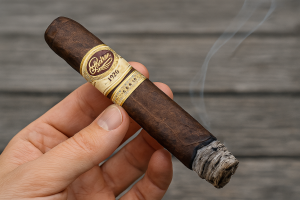How Long to Freeze Cigars to Kill Beetles: Best Practices for Cigar Preservation

Welcome to our curated guide on the art of cigar preservation! Cigar aficionados know that preserving the quality of cigars is essential for an exceptional smoking experience.
One often overlooked threat to the perfect cigar is the presence of beetles. In this blog, we will delve into the process of freezing cigars to eradicate beetles and provide you with a focus on how long to freeze cigars to kill beetles. Check the most important sections of the article below:
- Optimal Freezing Time: Finding the Perfect Timing
- The Case for Freezing: Why Freeze Cigars to Eradicate Beetles?
- Preparing for Freezing: Best Practices
- Procedure: Step-by-Step Guide to Freezing Cigars
- Post-Freezing Protocols: Thawing, Resting, and Evaluating
- Preventive Measures for Future Protection
- Conclusion
Optimal Freezing Time to Kill Beetles: Finding the Perfect Timing
The optimal freezing time for cigars depends on various factors, including cigar size, infestation level, and storage conditions. While recommendations may vary, here are some general guidelines:
- For mild infestation or preventive measures: 72 hours (3 days).
- For moderate infestation: 5-7 days.
- For severe infestation: 14-21 days.
It's essential to consider external factors such as humidity and temperature, as they can influence the freezing time. Higher humidity levels may require longer freezing periods. Adhering to these guidelines minimizes the risk of beetle infestation and ensures effective elimination.
The Case for Freezing: Why Freeze Cigars to Eradicate Beetles?
Freezing cigars to eliminate beetles is a widely accepted and effective method used by cigar enthusiasts and professionals alike. Freezing cigars is a safe and practical way to eradicate beetle infestations while preserving the quality of the cigars. Compared to various alternative methods, freezing offers several advantages:
- It is a non-toxic method that does not introduce any chemicals or substances into the cigars.
- Freezing kills beetles at all stages of their life cycle, eliminating the risk of spreading infestations.
- It is a simple and accessible procedure that can be easily implemented by cigar aficionados at home.
However, some misconceptions and concerns surround freezing cigars. Let's address these to encourage a better understanding of the process:
- Does freezing damage the cigars? When performed correctly, freezing does not harm the cigars. Temperature fluctuations or excessive moisture can cause damage, so following proper guidelines is important.
- Is freezing a permanent solution? Freezing kills adult beetles and their eggs, but it is still crucial to monitor and maintain proper cigar storage practices to prevent future infestations.
Preparing for Freezing: Best Practices
Prior to freezing cigars, it is crucial to ensure that they are stored in optimal conditions. Proper moisture levels and suitable storage conditions minimize the risk of beetle infestation. Here are some best practices to consider:
- Monitor and maintain humidity levels between 65% and 70% to prevent beetles from thriving.
- Regularly inspect cigars for any signs of beetle activity, such as small pinholes or powder-like substances near the cap.
- Segregate any cigars suspected of infestation from other cigars to prevent the problem from spreading.
Procedure: Step-by-Step Guide to Freezing Cigars
The freezing process requires careful attention to detail to ensure successful elimination of cigar beetles. Here's a step-by-step guide to follow:
- Remove the cigars from their individual wrappers or tubes.
- Place the unwrapped cigars in a sealed plastic bag or airtight container, ensuring there is enough space between cigars to facilitate proper airflow.
- Put the plastic bag or container in the freezer, making sure it is set at or below 0 degrees Fahrenheit (-18 degrees Celsius).
- Allow the cigars to remain frozen for the recommended duration, which we will discuss in the next section.
- Once the freezing time is complete, remove the cigars from the freezer and allow them to thaw naturally at room temperature.
- Let the cigars rest for at least 24-48 hours before attempting to smoke them.
- Inspect the cigars after thawing and resting to ensure that the beetles have been eliminated.
Post-Freezing Protocols: Thawing, Resting, and Evaluating
After cigars are thawed, it is crucial to adhere to post-freezing protocols to maximize their quality and condition:
- Thaw the cigars naturally at room temperature, avoiding any artificial heat sources.
- Allow the cigars to rest for at least 24-48 hours to stabilize moisture levels and flavors.
- Inspect each cigar closely, looking for signs of beetles or additional damage on the wrapper or cap.
- If any beetles or signs of infestation are present, repeat the freezing process for the affected cigars.
Following these protocols ensures that the cigars are safe to smoke and have not suffered any adverse effects.
Preventive Measures for Future Protection
While freezing is an effective method to eliminate beetles, preventing future infestations is equally important. Implement the following preventive measures to protect your cigar collection:
- Maintain your humidor properly (65%-70%) to deter beetle activity.
- Regularly rotate cigars to prevent stagnation and enhance air circulation.
- Inspect cigars periodically for signs of beetles or any other unusual activity.
- Consider using cedar sheets or other natural deterrents to discourage beetle presence.
Conclusion
Freezing cigars to eliminate beetles is a proven method that safeguards the quality and enjoyment of your precious collection. By understanding the impact of beetles, properly preparing cigars for freezing, following the step-by-step guide by Online Cigars, and adhering to optimal freezing times, cigar enthusiasts can rest assured that their cigars are beetle-free and ready to be cherished.
Remember, preventive measures and consistent vigilance are the keys to protecting your cigars in the long run. Incorporate these practices into your cigar preservation routine, and every puff will be an experience to savor, free from the threat of beetle-infested cigars.















